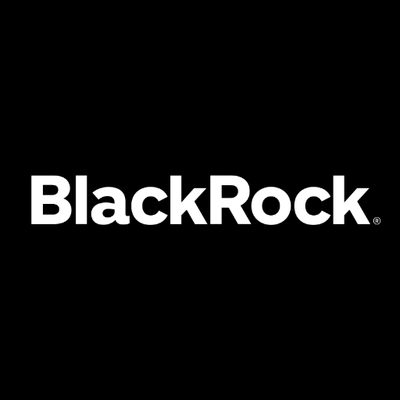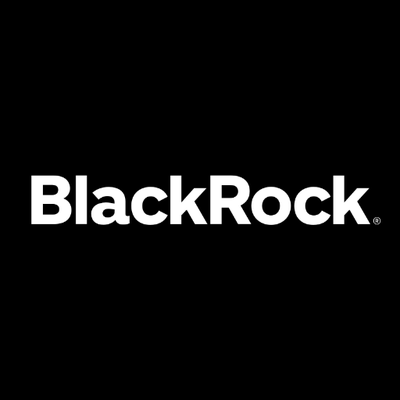BlackRock Smaller Companies Trust plc (LON:BRSC) has provided the following portfolio update.
All information is at 31 March 2020 and unaudited.
Performance at month end is calculated on a capital only basis
|
One month % |
Three months % |
One year % |
Three years % |
Five years % | |
| Net asset value* | -26.1 | -32.1 | -19.5 | -9.3 | 22.7 |
| Share price* | -24.5 | -34.6 | -17.9 | 7.2 | 37.4 |
| Numis ex Inv Companies + AIM Index | -24.0 | -32.9 | -25.2 | -27.1 | -13.2 |
*performance calculations based on a capital only NAV with debt at par,
without income reinvested. Share price performance calculations exclude income
reinvestment.
Sources: BlackRock and Datastream
| At month end | |
| Net asset value Capital only(debt at par value): | 1,144.78p |
| Net asset value Capital only(debt at fair value): | 1,126.95p |
| Net asset value incl. Income(debt at par value)1: | 1,169.09p |
| Net asset value incl. Income(debt at fair value)1: | 1,151.25p |
| Share price | 1,120.00p |
| Discount to Cum Income NAV (debt at par value): | 4.2% |
| Discount to Cum Income NAV (debt at fair value): | 2.7% |
| Net yield2: | 2.9% |
| Gross assets3: | £640.4m |
| Gearing range as a % of net assets: | 0-15% |
| Net gearing including income (debt at par): | 5.4% |
| 2019 Ongoing charges ratio4: | 0.7% |
| Ordinary shares in issue5: | 48,829,792 |
- includes net revenue of 24.31p.
- Yield calculations are based on dividends announced in the last 12 months as at the date of release of this announcement, and comprise of the final dividend of 19.20 pence per share, (announced on 03 May 2019, ex-dividend on 16 May 2019) and the interim dividend of 12.8 pence per share (announced on 5 November 2019, ex-dividend on 14 November 2019).
- includes current year revenue.
- As reported in the Annual Financial Report for the year ended 28 February 2019 the Ongoing Charges Ratio (OCR) was 0.7%. The OCR is calculated as a percentage of net assets and using operating expenses, excluding performance fees, finance costs and taxation.
- excludes 1,163,731 shares held in treasury.
| Sector Weightings | % of portfolio |
| Industrials | 33.5 |
| Financials | 20.8 |
| Consumer Services | 17.0 |
| Consumer Goods | 9.6 |
| Health Care | 6.8 |
| Technology | 6.3 |
| Basic Materials | 3.7 |
| Oil & Gas | 1.5 |
| Telecommunications | 0.8 |
| —– | |
| Total | 100.0 |
| ===== |
| Ten Largest Equity Investments | |
| Company | % of portfolio |
| YouGov | 2.7 |
| IntegraFin | 2.3 |
| Breedon | 1.7 |
| Qinetiq Group | 1.7 |
| Stock Spirits Group | 1.6 |
| Team17 | 1.6 |
| Learning Technologies | 1.5 |
| Treatt | 1.4 |
| Central Asia Metals | 1.4 |
| Sirius Real Estate | 1.4 |
Commenting on the markets, Roland Arnold, representing the Investment
Manager noted:
During March the Company’s NAV per share fell by 26.1%1 to 1,144.78p on a capital only basis, whilst our benchmark index, Numis ex Inv Companies + AIM Index, fell by 24.0%1; for comparison the FTSE 100 Index fell by -13.8%1 (all calculations are on a capital only basis).
Markets continued to fall during March as the COVID-19 pandemic swept through economies across the globe, and the extent of the crisis that the virus would cause became apparent. As market participants adjusted to the shock, the ensuing fall in global equity markets was the sharpest ever. Volatility spiked and financial markets infrastructure came under extreme pressure. Policy response has been swift, from fiscal and monetary support, to the unprecedented public health measures that have resulted in half the world’s population currently being in some form of “lockdown”. Companies are, in many cases, facing a revenue decline unlike any seen before as authorities curtail non-essential activity. The scale and duration of the downturn is causing immense uncertainty, and investors, like everyone else in the world, await clarity on how we will exit the lockdown phase.
Many of the largest detractors to performance were businesses that are experiencing significant falls in demand as a result of COVID-19 or those that have been mandated to close resulting in companies generating zero (or close to zero) revenues during this period of lockdown. For example, Hyve (exhibitions), Watches of Switzerland (luxury watch retailer with outlets in airports), Vistry (UK Housebuilder), and Johnson Services Group (linen rental supplier to catering and hotels), all saw their share prices significantly impacted during the month. While these falls have been painful in the short term, our focus on financially secure businesses mean our holdings can generally survive a period of lockdown. Unfortunately, this pandemic will force many companies out of business, but for those that can survive, we believe their competitive positions will be naturally enhanced.
Against such severe absolute market falls, there were some shares that managed to buck the trend. Video game developer, Team17, reported record full year results, with new product launches during the year driving strong growth in revenues, and a solid pipeline of planned releases resulting in upgrades to guidance. YouGov and IntegraFin outperformed the market, as both businesses have been trading well in recent months and will remain open and therefore still generating revenue during the lockdown period.
The outlook for the global economy has never been more uncertain. There is no historical parallel to current events. Even the Global Financial Crisis of 2008 was at its heart a banking crisis, something investors had seen before. It goes without saying therefore that the immediate outlook is for continued levels of heightened volatility as COVID-19 continues to dominate global events. No one knows what the duration of the pandemic will be, the duration of restrictive public health measures nor the lasting damage that both will do to the economy as a whole. We certainly don’t pretend to have the answers and therefore we have not materially changed our positioning.
The impact of COVID-19 is unpredictable, unavoidable and unprecedented. However the situation will improve in time, and this provides us with confidence in our strategy on a medium-term view. Recent market falls presents us with a fantastic investment opportunity. The Company’s investment strategy is focussed on quality growth investment opportunities in smaller companies, a style that has demonstrably worked over the long-term, and historically, periods of sudden underperformance, such as this, have proven to be excellent investment opportunities.
1Source: BlackRock as at 31 March 2020
20 April 2020
BlackRock Smaller Companies Trust plc aims to achieve long-term capital growth for shareholders through investment mainly in smaller UK quoted companies.





































